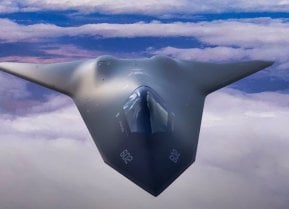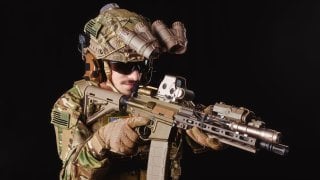Delta Force: The U.S. Military's Ultimate Special Forces Squad Russia Freaks Over
Founded in 1977, Delta Force is the U.S. Army’s elite special operations unit, specializing in counterterrorism, hostage rescue, and special reconnaissance. Created by Green Beret Charles Beckwith, who was inspired by the British SAS, Delta Force became fully operational in 1979.
Top 3 Points: Founded in 1977, Delta Force is the U.S. Army’s elite special operations unit, specializing in counterterrorism, hostage rescue, and special reconnaissance. Created by Green Beret Charles Beckwith, who was inspired by the British SAS, Delta Force became fully operational in 1979.
-Despite a disastrous first mission during the Iran hostage crisis, the unit has since grown into a highly effective and autonomous force. Delta Force recruits, often drawn from U.S. Army Rangers, endure a rigorous selection process, followed by extensive training in advanced combat, espionage, and demolition.
-Today, Delta Force remains a key player in America’s counterterrorism and global special operations.
Inside Delta Force: America’s Secretive Counterterrorism Unit
When Americans think of US special forces, the Navy SEALs are typically top of mind. But the U.S. Army’s Delta Force may have a righteous claim as America’s most elite special forces group.
Founded in 1977, Delta Force performs counterterrorism, hostage rescue, and special reconnaissance – much like their SEAL counterparts, albeit without the amphibious or underwater emphasis.
Founding Delta Force
The persistence of Charles Beckwith, a Green Beret who had served in Vietnam, led to Delta Force’s creation. Beckwith was convinced that the U.S.’ lack of an equivalent to the British SAS, a small and flexible unconventional warfare unit, was a glaring deficiency.
Beckwith began advocating for the creation of an autonomous special forces teams with a wide range of skills. Initially, Beckwith was rebuffed. But as the threat of international terrorism grew, the higher-ups began to recognize the value of the type of unit Beckwith was describing.
Delta Force was certified as fully mission-capable roughly two years after being founded, in 1979, just in time for one of the most significant international incidents of the late 20th century: the Iran hostage crisis. When Iranian students took American citizens hostage from the U.S. embassy in Tehran, Delta Force was assigned with designing a rescue plan. The plan came to be known as Operation Eagle Claw.
Operation Eagle Claw is remembered as an operational disaster so profound that it effectively sunk Jimmy Carter’s chances of re-election. The plan called for the forceful rescue of American hostages, with Delta Force members arriving overnight via helicopter.
Three of the eight helicopters failed, for various reasons, ending Delta Force’s bid to rescue the hostages. The incident prompted an investigation. It ultimately led to the founding of the “Night Stalkers” special forces helicopter squadron, and to a restructuring of Delta Force.

Recruiting Delta Force
The majority of Delta Force recruits come from the U.S. Army Rangers. The selection process lasts four weeks, and is conducted twice a year at Camp Dawson in West Virginia. During the selection process, recruits are subjected to a battery of physically and psychologically grueling tests. The attrition rate often exceeds 90%. For the recruits who make it through the selection gauntlet, another six months of Delta-specific training awaits.
The skills Delta Force members are expected to master vary widely, and consist mostly of what you’d expect: marksmanship, demolitions, executive protection, espionage, counter-surveillance, and the like. The finished product of the training course is an elite special forces operator who enjoys a special degree of autonomy and is even permitted relaxed grooming standards – a rarity in the U.S. military.
The Pentagon doesn’t often comment on Delta Force operations, leaving the unit with an air of mystery perhaps unmatched in the U.S. military community.
But we know that Delta Force is an oft-deployed unit, the tip of the spear, that has seen steady action in official and unofficial conflicts for nearly 50 years.
About the Author
Harrison Kass is a defense and national security writer with over 1,000 total pieces on issues involving global affairs. An attorney, pilot, guitarist, and minor pro hockey player, Harrison joined the US Air Force as a Pilot Trainee but was medically discharged. Harrison holds a BA from Lake Forest College, a JD from the University of Oregon, and an MA from New York University. Harrison listens to Dokken.
Image Credit: Shutterstock.


